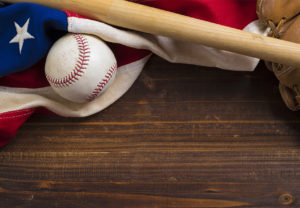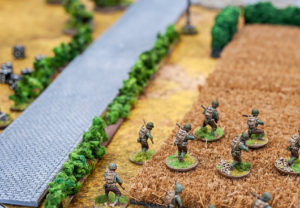Okay. When you meet people for the first time, and they tell you their name — after the conversation concludes you stroll back to wherever you came thinking “wait, what was their name?”
Be honest. This happens to you.
Don’t fret it, because it happens to most of us, but it would sure be nice to solve for this, wouldn’t it?
Enter a man who has competed in the art of remembering things, Ed Cooke, who recently sat down with a publication called Fatherly and spilled his secrets as to how to avoid being an empty-headed nincompoop. He broke it down into six big ideas, and we’ve broken down those even further to give you what you need on a simple, yet elegant, silver plastic platter (we’re not pretentious here after all).
Turns out Cooke started studying the memory game when he was in a bad way, sitting in a hospital bed for three months with nothing but a TV clicker, a book and his mind to keep him occupied. When he got out and on his two feet again, he eventually competed in the World Memory Championships and did pretty damn well.
He sums up remembering stuff like so: no one has a good or bad memory — it’s just that the people who recall things better than others use focusing tricks to get it done.
“American males will remember baseball averages without having a notion the quantity of information is equivalent to a medical degree,” he said to Fatherly.
He’s not kidding.
Without further ado, here are his bag of ploys:
Songs Make It Easier to Remember Words
Melodies somehow make it easier for the brain to responsibly deposit words, rather than just throwing them in there without a tune, where they’ll most likely get lost. It’s why you can remember all the lyrics to Bruce Springsteen’s “Thunder Road” but can’t recite the Gettysburg Address (that you once performed in fifth grade to a rousing standing ovation).
Piggyback
There are things you do remember. We can agree on this, no? Well Cooke says that you can use these known notions and hitch them to something that’s strange and new, and it’ll help you nail it down in the bank forever. It’s a familiar stratagem but an effective one.
However you use this technique, don’t by golly use it like this:
Actually Focus on What You’re Listening To
Cooke goes a little off the reservation with this one, but we trust his expertise and his credentials so we’ll follow along.
“Listen to the radio and set a timer to go off once a minute,” he told Fatherly. “Pay complete attention for a minute. Then turn your attention off. On and off. It teaches you a meta ability to notice when you’re paying attention, because you don’t really notice when you’re not paying attention. When there’s a contrast, you can control it on a general level.”
Recall That Thing When It’s Important Dammit
Basically, it’s taking the most vital things (like picking someone who’s stranded at the airport) and arranging them in your mind so you don’t forget them … when they matter most. Cooke says that it’s not that you actually forget certain things you need to accomplish in a day, it’s just that you might not bring them up at the right moment.
He says in order to not piss people off and forget to check off things on your daily list, recite the points aloud (active association). It’ll make it stick. Reading it with just your eyes won’t as much. It’s science.
Jot It Down
There’s something after writing or typing something we’ve learned into or onto something that makes it bigger and less forgettable in our brains. It’s probably why taking notes in class while taking in a lecture helped you do well on the test — and it went way beyond rereading your sloppy handwriting.
Make a Headline for the People You Meet
This is perhaps Cooke’s best tip of them all. He explains that sometimes you forget something or someone because there’s way too much noise. Hone in on the signal by creating a simple slug for each.
We’ll let Fatherly explain, via the master:
Cooke says that he’s started to write a one line note for each candidate that he can use the next time they comes in. So rather than a 100 Python developers who all wore plaid and Warby Parker glasses, he has one piece of landmark information that has its own space. Failing that, you can just put a little bit of nail-polish on their backs to tell them apart.
There you go.
Now go read this entire blog post out loud so you remember it.




































